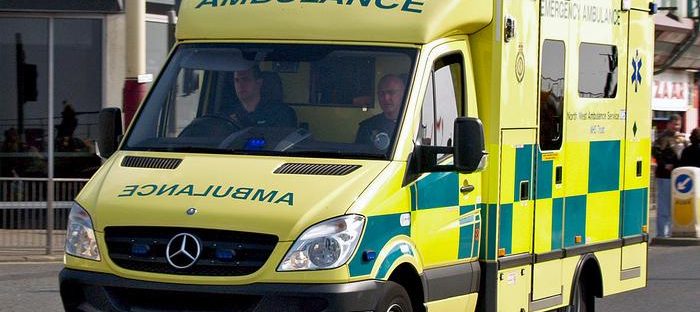No-deal Brexit could have ‘severe’ impact on recruitment of NHS staff to Manchester hospitals
- Increase in vacancies across the NHS
- Concern rising about the impact of Brexit on the recruitment from EU countries
- NHS in Greater Manchester to offer jobs to all healthcare graduates
Fears have been expressed about the effect a hard Brexit will have on the recruitment of doctors and nurses to Manchester’s health service.
Senior figures in the NHS have expressed concern at the impact of Brexit on the workforce with the number of applications from EU citizens “dropping like a stone.”

The Northern Quota has investigated how dependent the NHS in Greater Manchester is on frontline staff from European Union (EU) countries.
Data released by the Bureau of Investigative Journalism was used to build the picture of the staff across Manchester’s 11 NHS trusts.
Figures released by the Nursing and Midwifery Council show that the number of nurses and midwives from EU countries applying to the join its registered has plummeted.

(Source: NMC)
In the period since the Brexit result there has been a small net drop in nurses and health visitors from EU countries across Greater Manchester.
Chief executive of NHS Employers, Danny Mortimer, said: “We have absolutely seen applications from within the EU drop. Just plummet. Graphs show EU nurses arriving up until the referendum and – from that result onwards – within six months, it just drops like a stone.”
There are concerns a hard Brexit and an end to free movement will lead to an increase in red tape. Future requirements for both existing and new staff to work within the UK have been highlighted as a risk to recruitment and retention.
A Department of Health spokesperson was keen to stress EU staff in the NHS “will be among the first to be able to secure their settled status”.
A spokesperson for the Greater Manchester Health and Social care partnership said: “EU staff play an incredibly important role in Greater Manchester services, like all NHS and social care staff, and we will be seeking to support them to continue to do so regardless of the outcome of Brexit negotiations.”
Figures from NHS digital shows there are 1,398 frontline EU staff making up 4.9% of frontline staff within Greater Manchester
The Christie, a specialist cancer hospital within Manchester relies heavily on EU staff, having the fifth highest percentage of EU doctors outside of London.
Other hospital trusts to note include Stockport NHS Foundation Trust which has 9.7% of its nursing staff from the EU and Manchester Univeristy NHS Foundation Trust which has 9.7% of doctors and 5.9% of its nursing staff from EU.
It has been argued that those trusts with a greater reliance on EU staff may be at a greater risk of staffing problems as further recruitment from the EU drys up.
The NHS across the country is already struggling to recruit and retain staff. There are currently 41,000 nursing vacancies and 11,500 doctor vacancies across the UK.
NHS improvement has released that the north of England has a vacancy rate almost half that of London. In Greater Manchester last year vacancies stood at 1,559 for nurses and 223 for consultants.
The city’s £6bn health and social care budget is devolved to Greater Manchester Health and Social Care Partnership which they say has allowed them to tackle the issue of a recruitment in an unique way.
A spokesperson said: “Devolution has given us the opportunity to do something different when it comes to growing NHS services in Manchester.”

As reported by the National Health Executive this month Andy Burnham, Mayor of Manchester, said that nursing graduates in Greater Manchester will be guaranteed work in one of the region’s healthcare providers and potential access to low-cost housing. This with the aim of making recruiment more sustainable going into the future.
He said: “It is backed by all of Greater Manchester’s NHS providers and universities. We will move quickly to put this in place for people who completed their course in early 2019.
“The scheme will give people more confidence to begin their training and, we hope, an incentive to do it here in Greater Manchester at one of our four universities.
“We need to be ready to deal with the shortages to the NHS workforce that Brexit may bring.”


